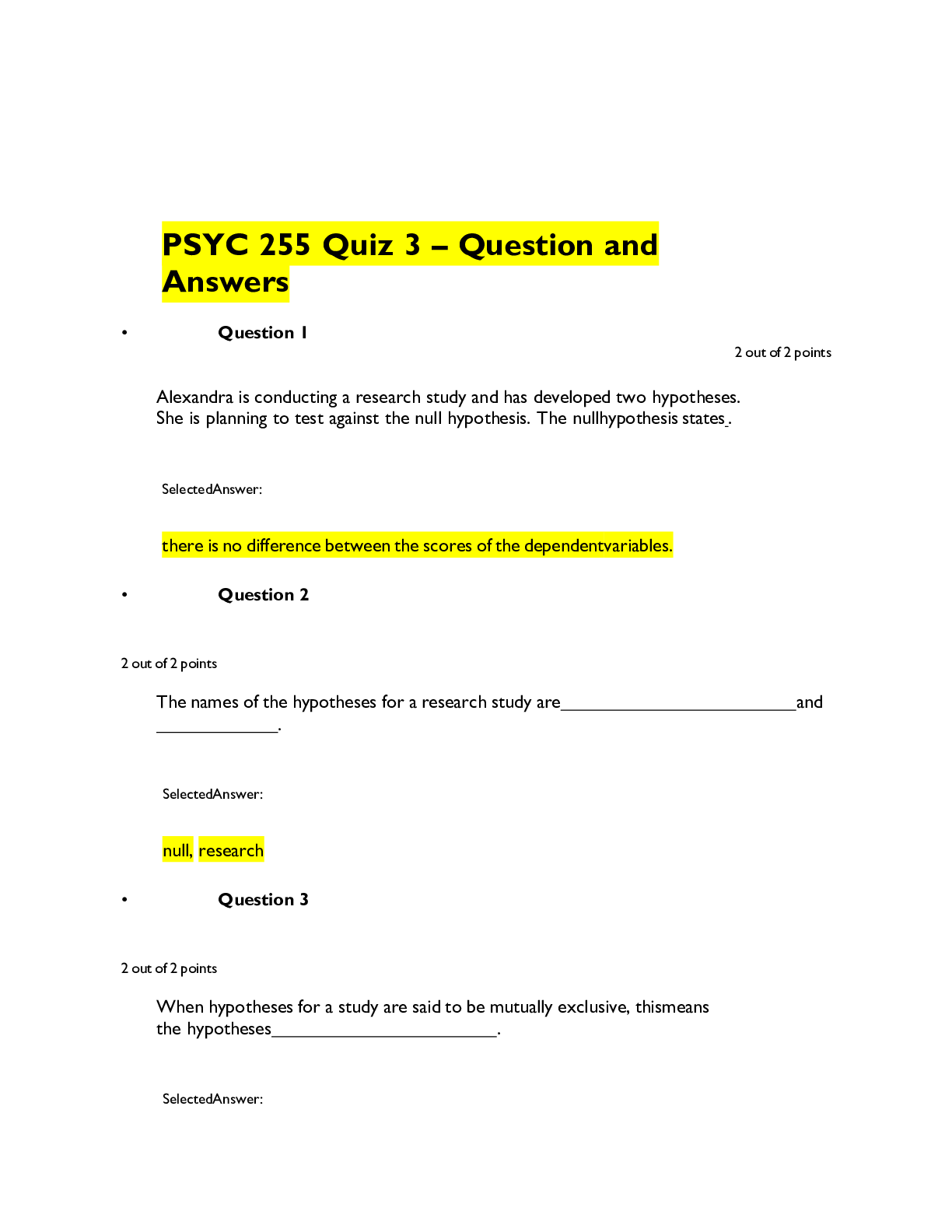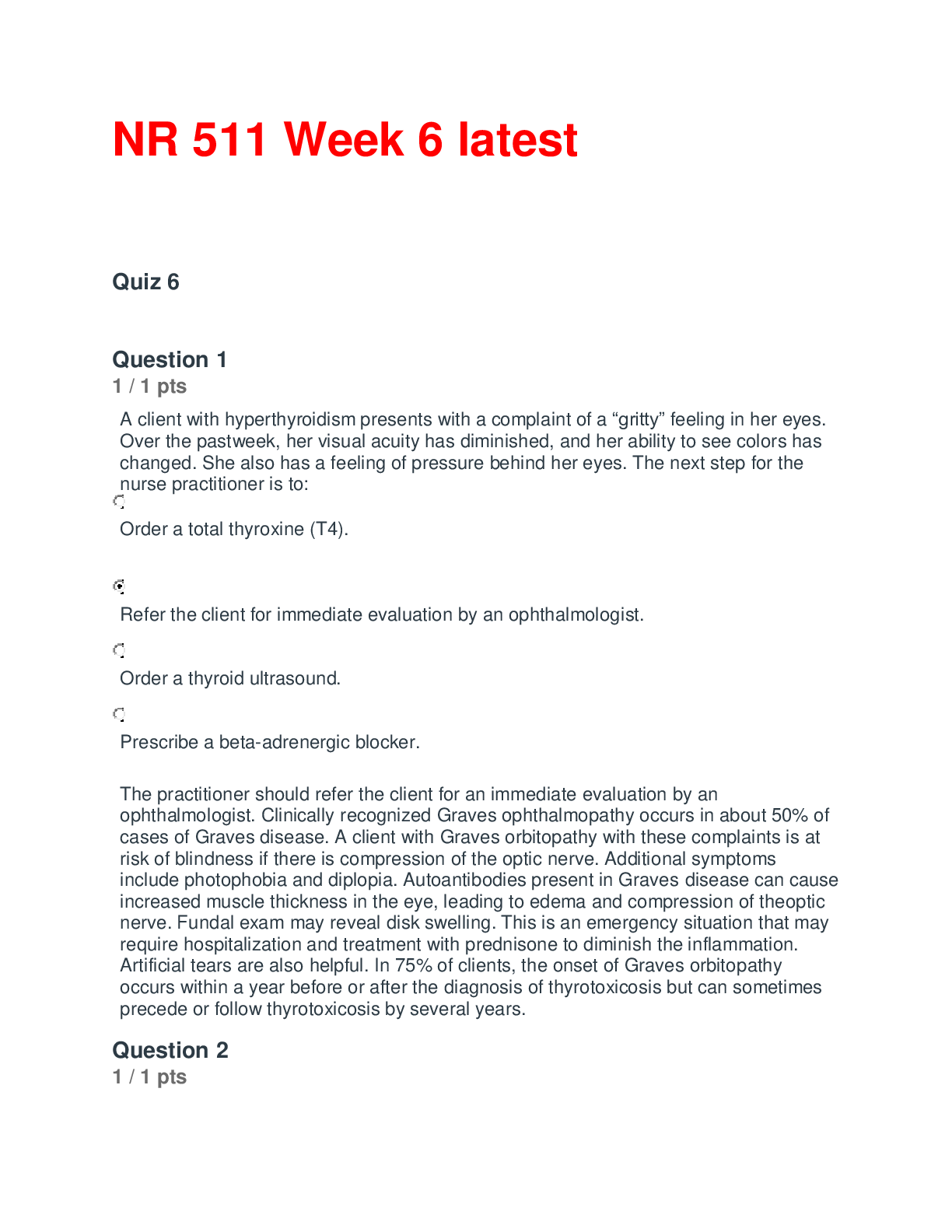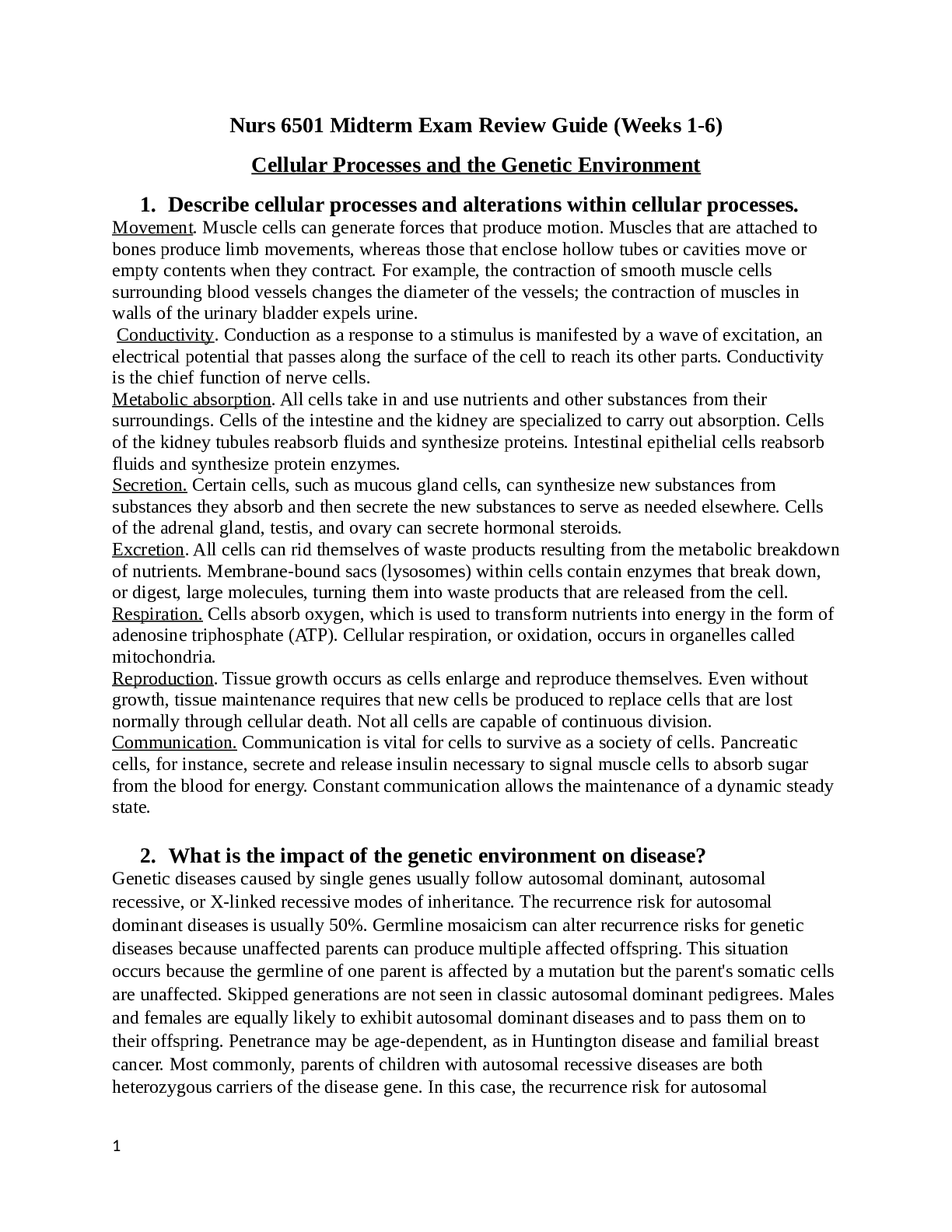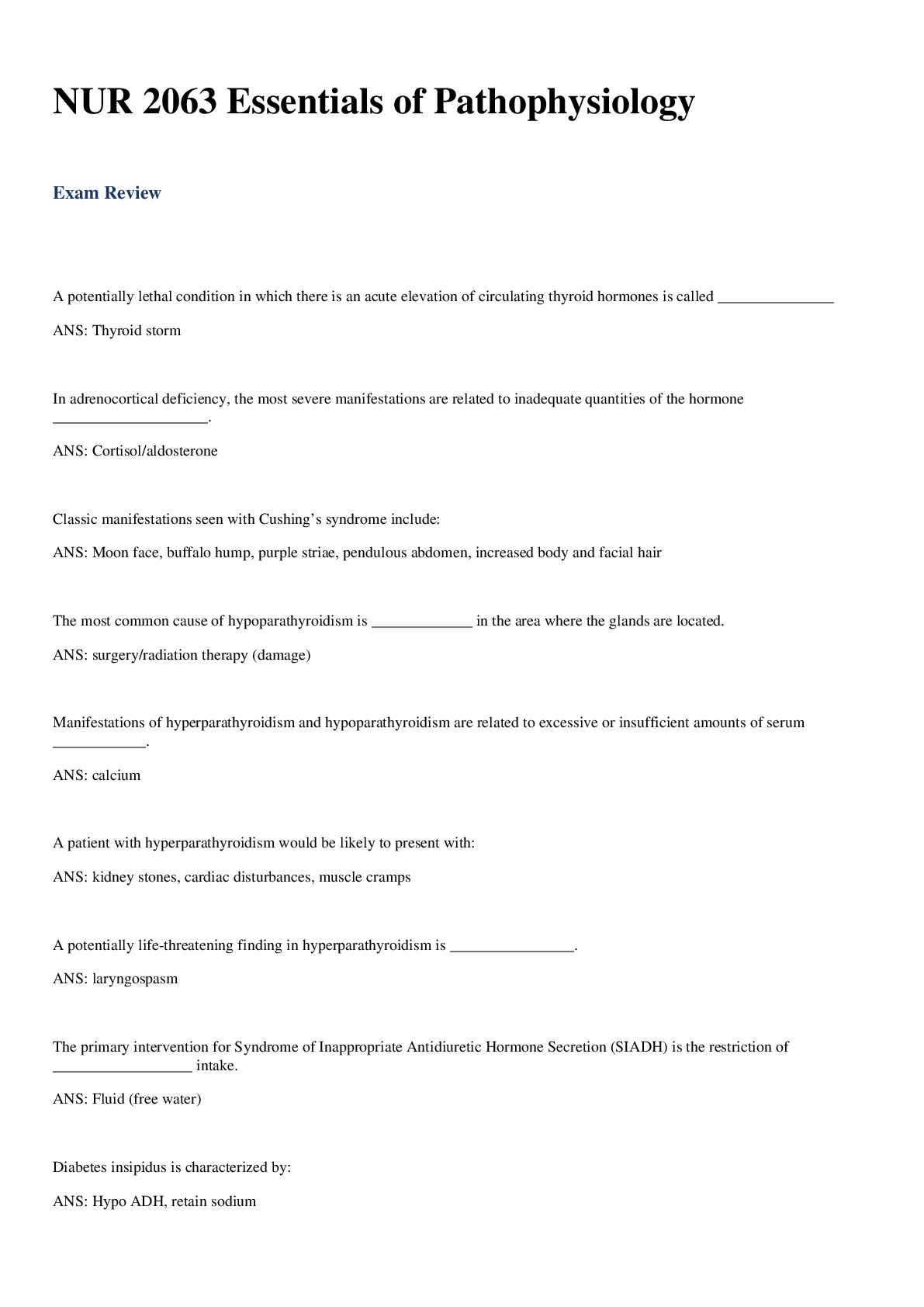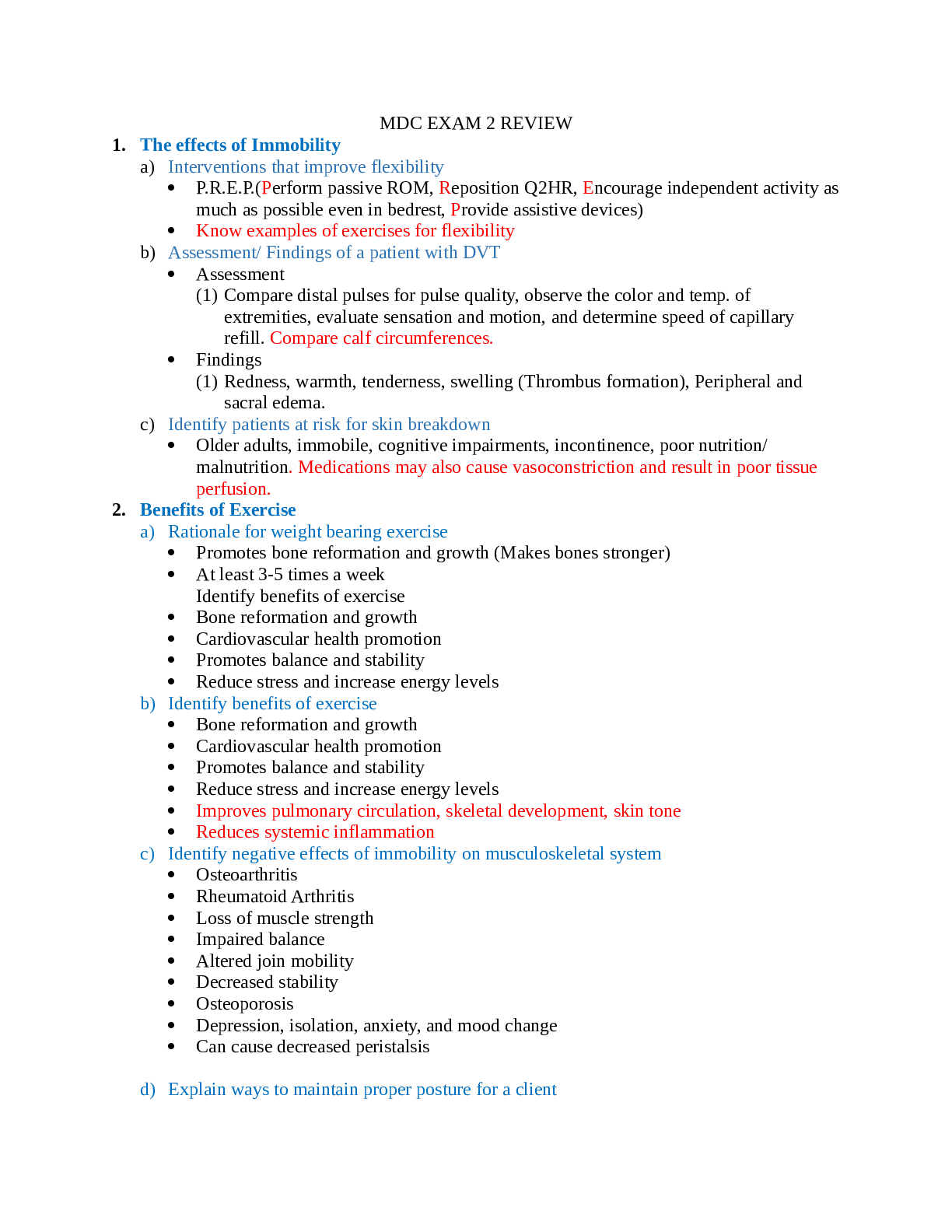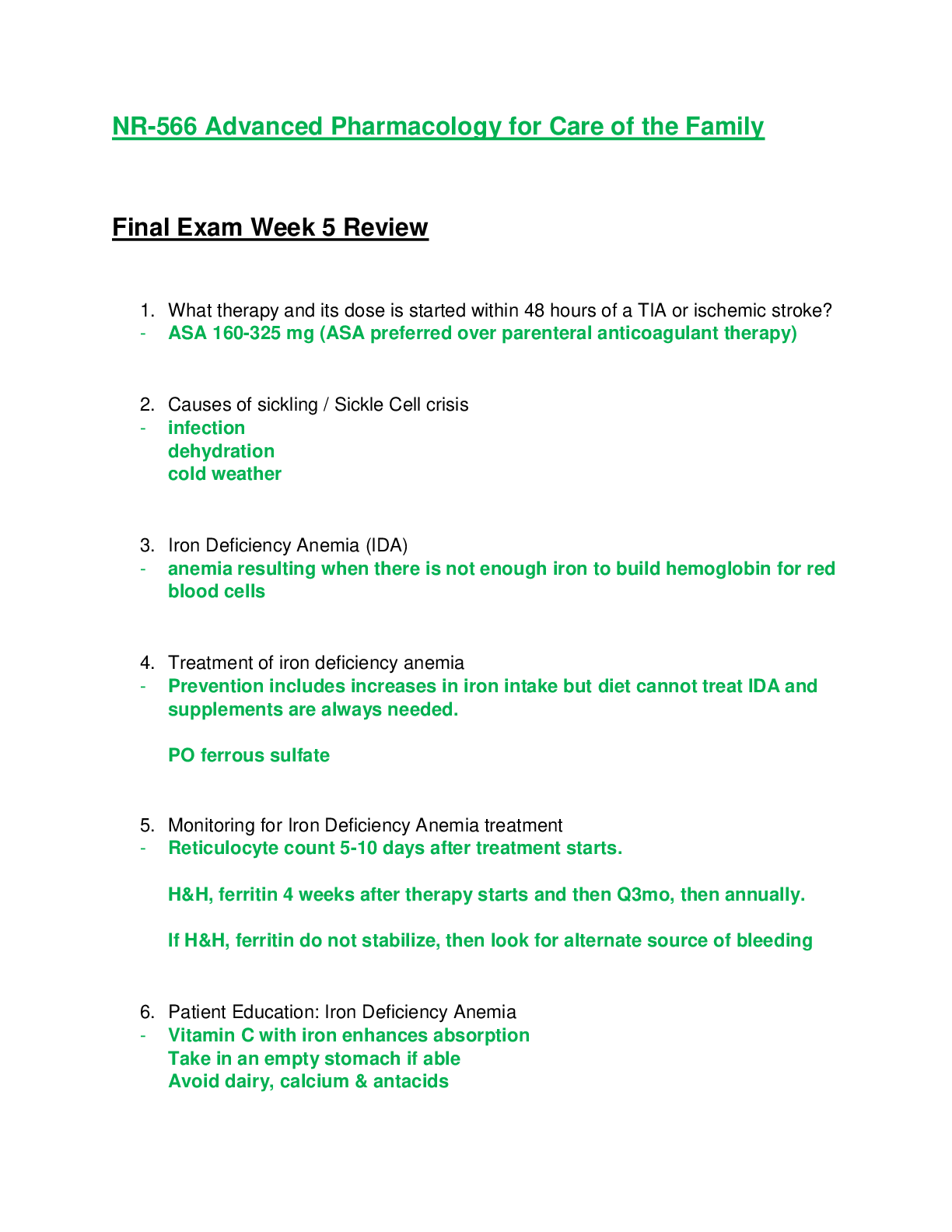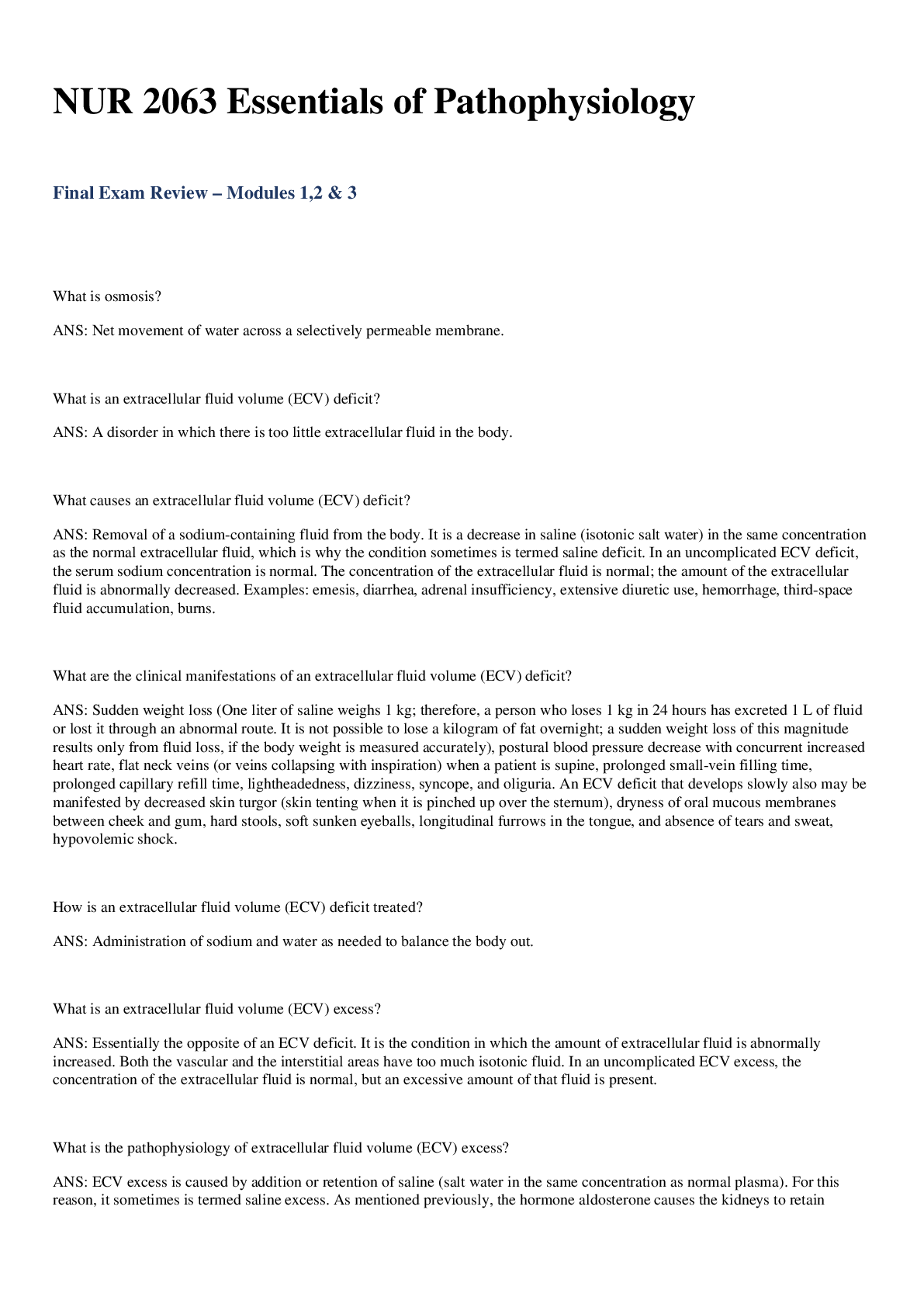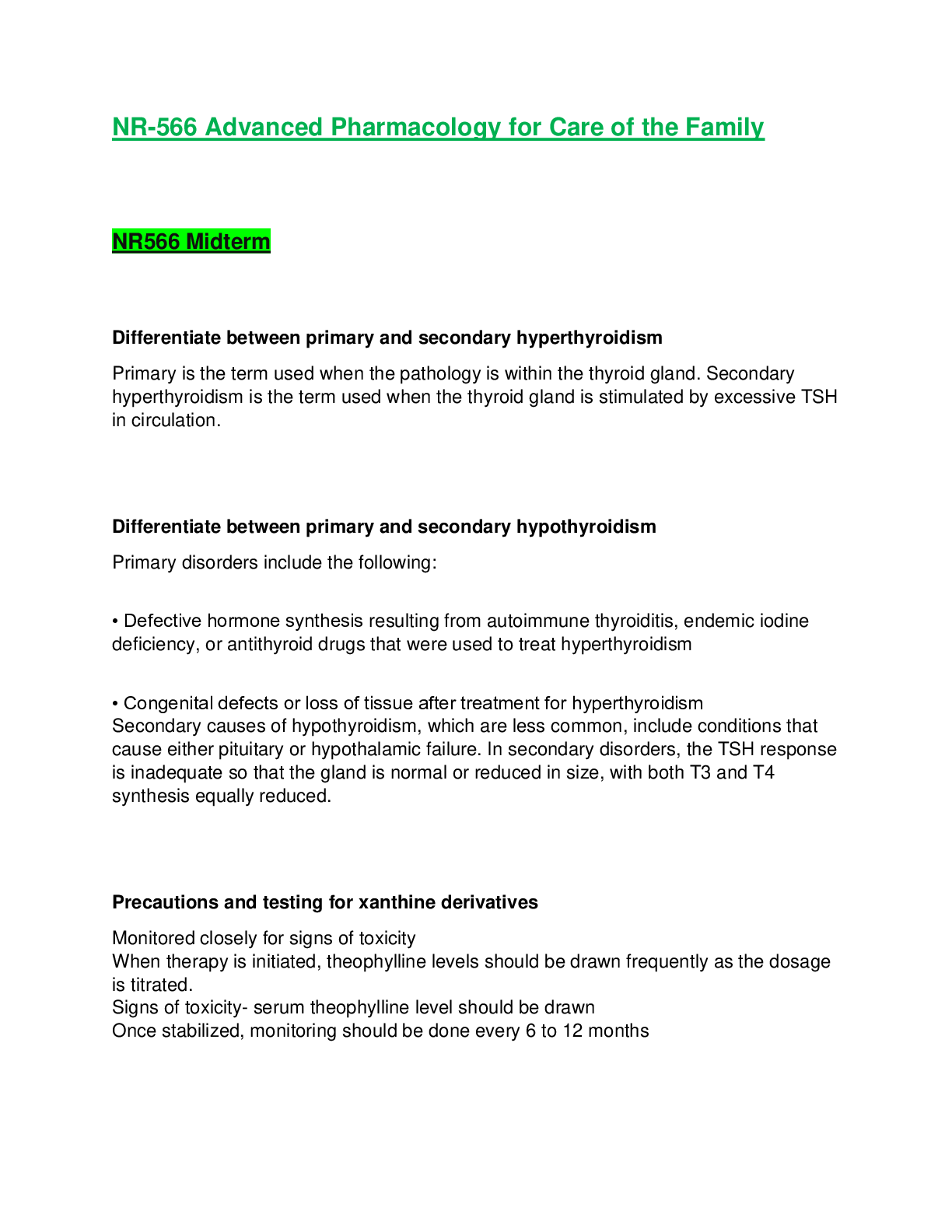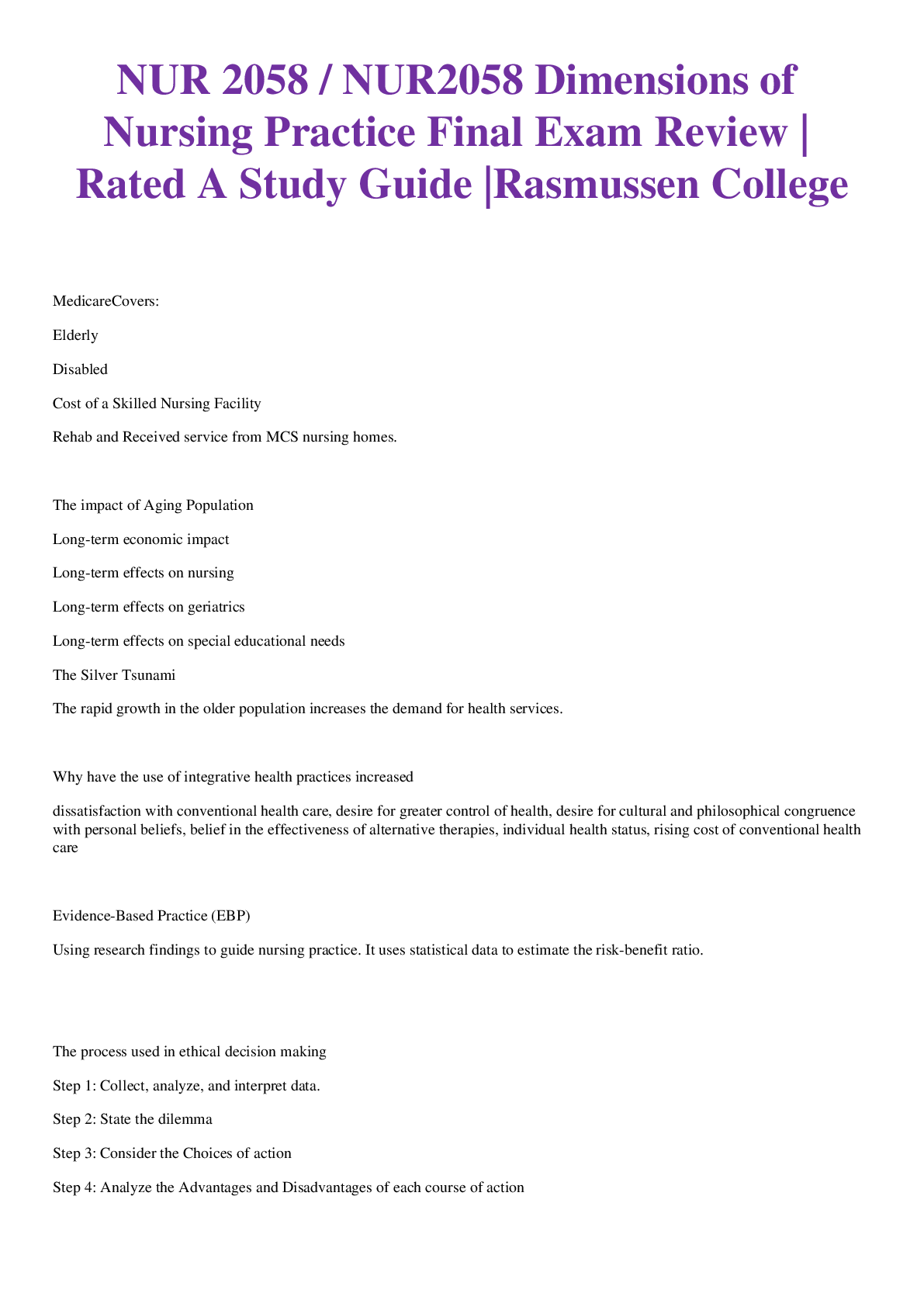Law > EXAM REVIEW > LAW revision-guide-lecture-notes-1-24 (All)
LAW revision-guide-lecture-notes-1-24
Document Content and Description Below
EU Institutions The European Comission – Article 17 TEU, Articles 244-250 TFEU – 1 National from each MS - Guardian of the Treaty - Promote the general interest of the union - Ensure application... of the treaties - Oversee application of Union Law under the control of the Court of Justice - Formulation of Policy – Legislative initiative - Execution and administration of policy The Council of the European Union – Article 16 TEU, Articles 237-243 TFEU - No fixed members. At each Council meeting, each country sends the minister for the policy field being discussed - Passes EU Law (with EU Prlmnt) - Signs Agreements between the EU and other countries - Approves the annual EU budget - Develops the EU’s foreign and defence policies - Co-ordinates cooperation between courts and police forces of member countries The European Parliament – Article 14 TEU, Articles 223-234 TFEU - 751 MEPs, individually elected in each Member State - 5 year terms - St in political groupings They debate and pass EU laws, with the Council. They scrutinise other EU institutions, particularly the Commission, to make sure they are working democratically. They debate and adopt the EU’s budget with the council. Supervisory Work: Can question the commission and demand written answers. Can require commission to resign en bloc. New commissioners must be approved by parliament. Action to Annul contained in Articles 263-264 TFEU. Article 265 TFEU challenge other institutions if they fail to act. Committee of Inquiry to investigate maladministration. Problems with the European Parliament - Large Constituencies - Low electoral turn-out - Lack of uniform electoral procedure across the member states - EP elections usually contested on domestic issues - MEPs accused of infrequent attendance - Location – split between three cities (Luxembourg, Strasbourg, Brussels) The European Council – Article 15 TEU, Articles 235-236 TFEU - Heads of the Member States + Presidents of Council and Commission - Meets 4 times a year Has twofold role; Sets the EU’s general political direction and priorities and dealing with complex or sensitive issues that cannot be resolved at a lower level of intergovernmental cooperation. Downloaded by IAN NJUGUNA ([email protected]) lOMoARcPSD|5967629 Has no power to pass laws Court of Justice of the European Union – Article 19 TEU, Articles 251-281 TFEU - 1 judge from each member state, as assisted by the advocate general - General Court also has at least one judge from each MS CJEU and The Preliminary Ruling Procedure - It ensures that in the interpretation and application of the Treaties, the law is observed Article 19(1) TEU. The Article 267 Procedure - Has had a significant role in the development of the EU Law - In exercising their interpretative role, they consider; supremacy, direct effect, indirect effect of EU law, state liability, general principles of EU law Purpose: Questions of EU Law referred by national courts to CJEU, the answers to which are necessary to enable national courts to give judgement – so as to ensure uniform application of EU Law Who may refer – A Court or Tribunal which should have; a judicial function; independence from the parties; be recognised by the state for its decision-making function. Case 246/80 Broekmeulen – Dutch appeals committee for people who want to practice medicine in the Netherlands – Appeals committee was indeed a court or tribunal, even if not recognised by dutch law, had necessary qualities for ECJ Case 102/81 Nordsee Deutsche – Independent arbitrator not considered as a court or tribunal National Courts’ discretion to refer - If national court considers that a decision on the question is necessary to enable it to give judgement Referral not mandatory in questions of interpretation But cannot be fettered in exercise of discretion by national superior courts Case C-210/06 Cartesio – Hungarian Law made it possible for lower court decision referring to ECJ to be set aside on appeal, and lower court can be ordered to resume the domestic law proceedings Despite discretionary language, questions of validity of EU law must go to CJEU. National courts cannot declare EU Law invalid. Cas 314/85 Fotofrost – National courts may consider the validity of a community act. However, national courts themselves have no jurisdiction to declare that a community act is invalid. Only the CoJ, has jurisdiction both to declare void or invalid an act of a community institution. Downloaded by IAN NJUGUNA ([email protected]) lOMoARcPSD|5967629 [Show More]
Last updated: 1 year ago
Preview 1 out of 46 pages
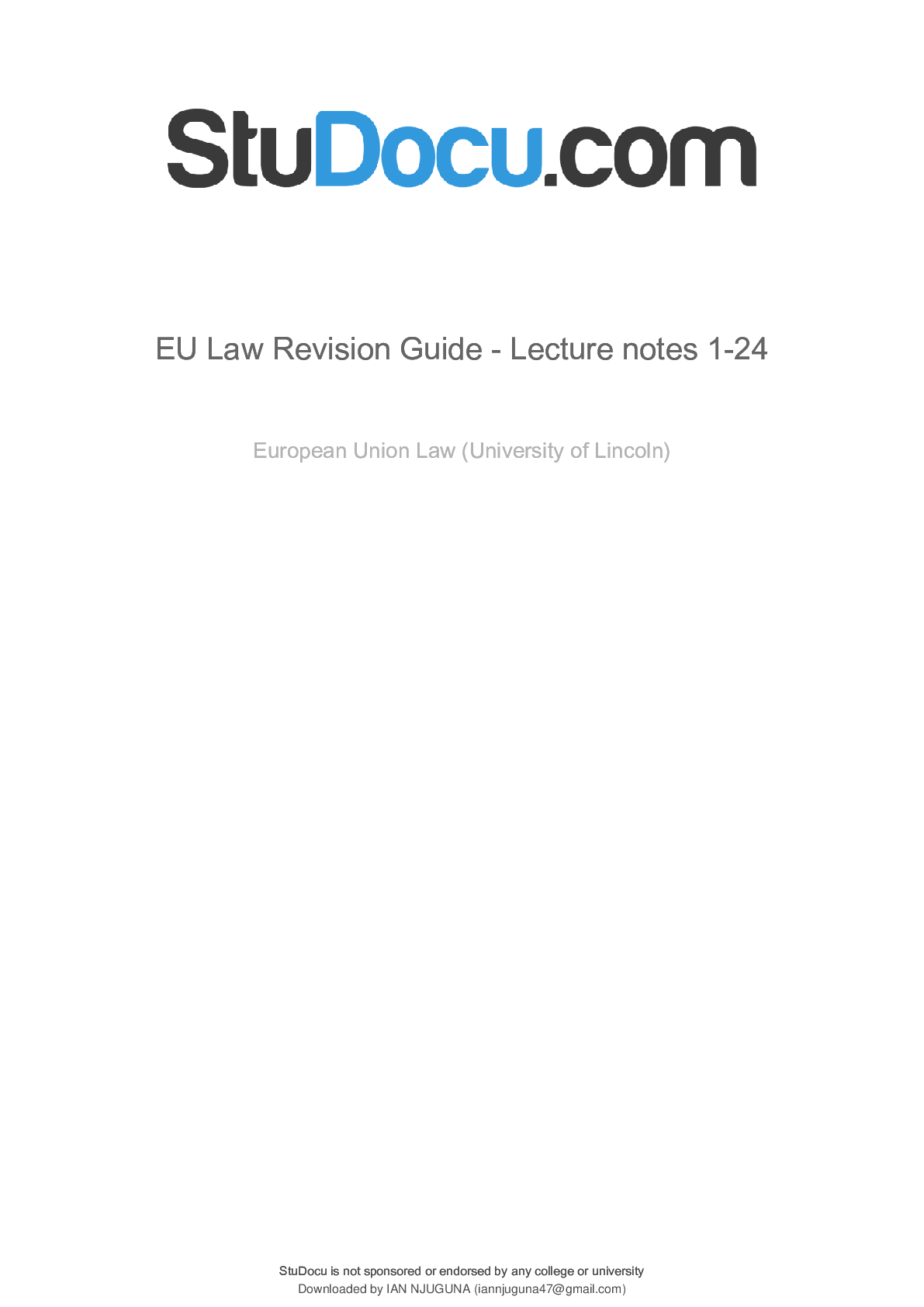
Reviews( 0 )
Document information
Connected school, study & course
About the document
Uploaded On
Apr 15, 2021
Number of pages
46
Written in
Additional information
This document has been written for:
Uploaded
Apr 15, 2021
Downloads
0
Views
56

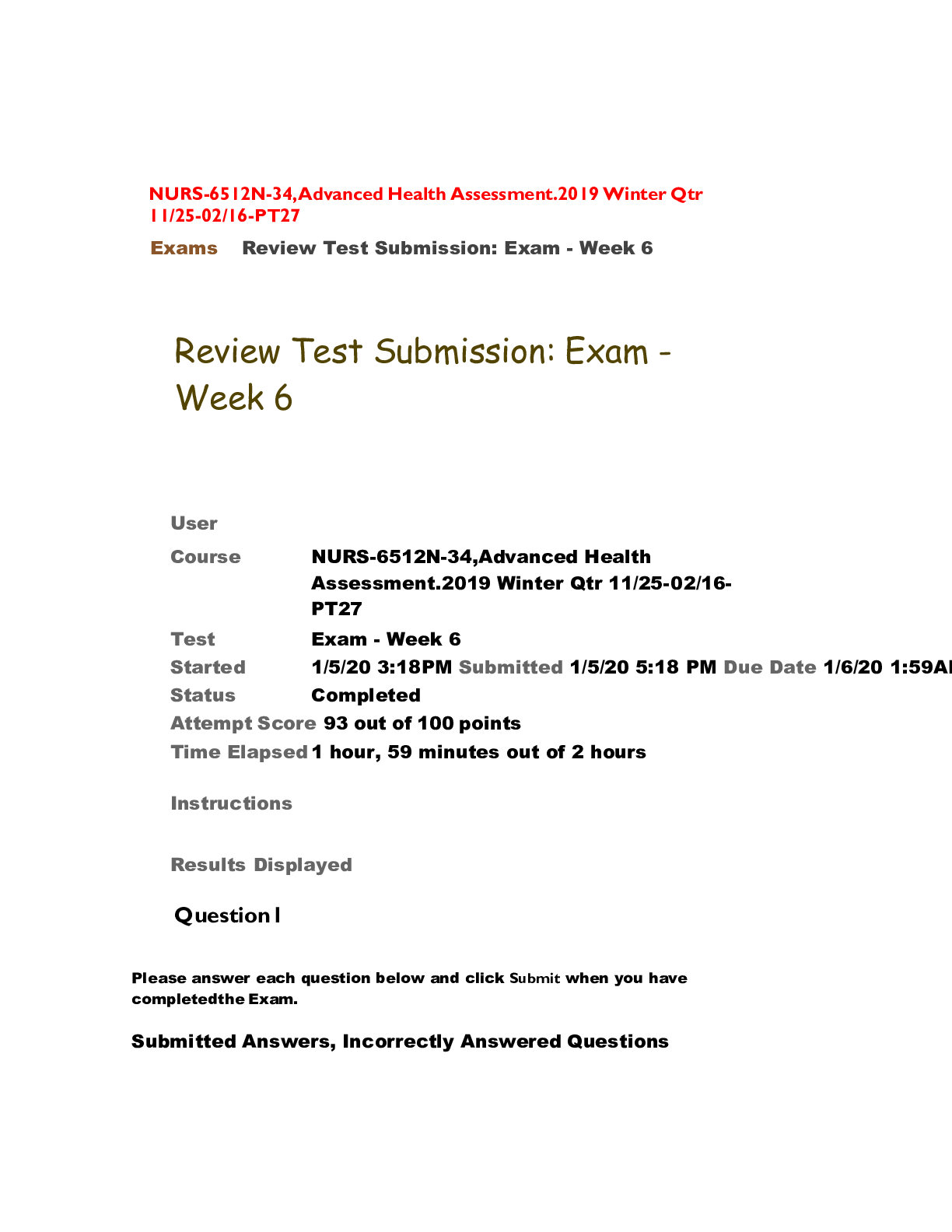

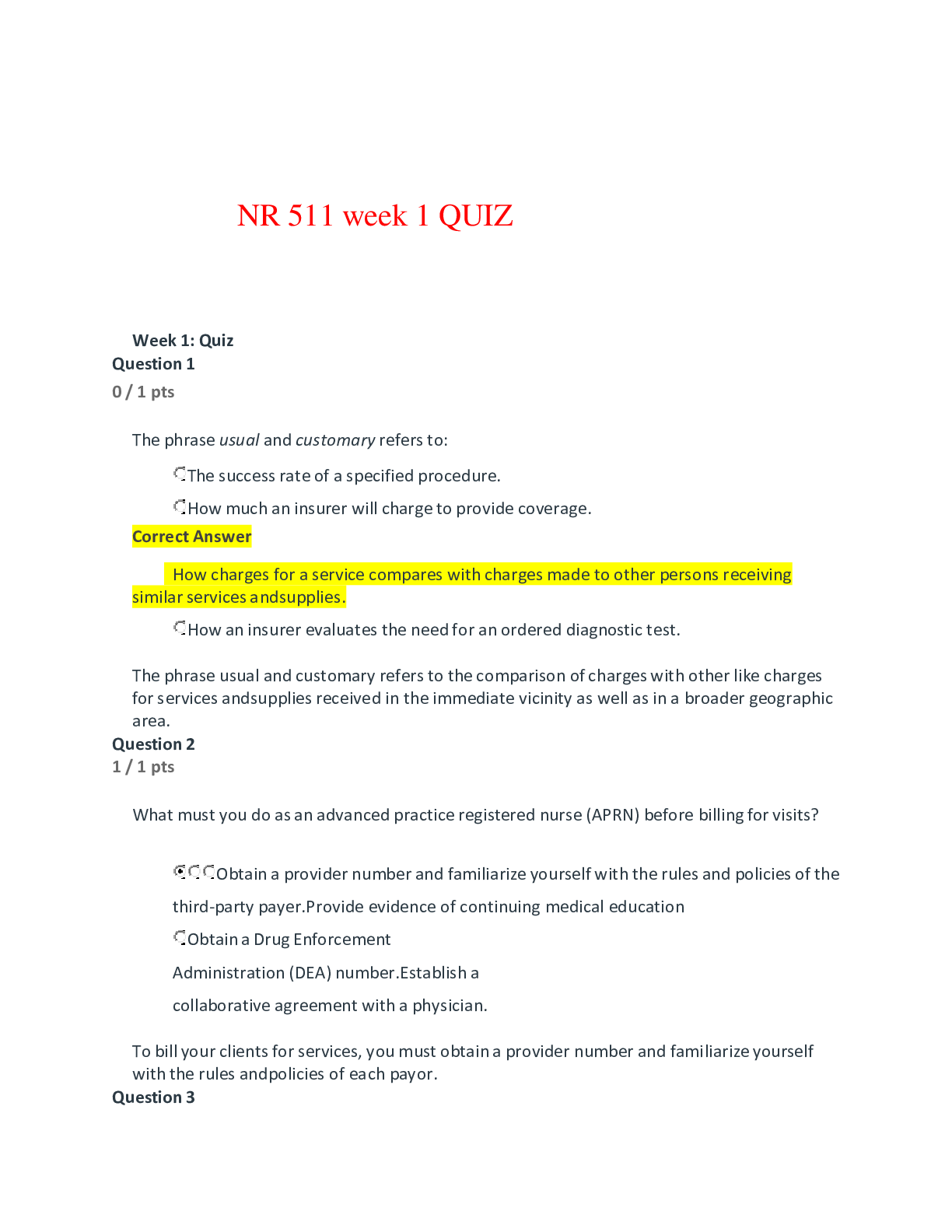

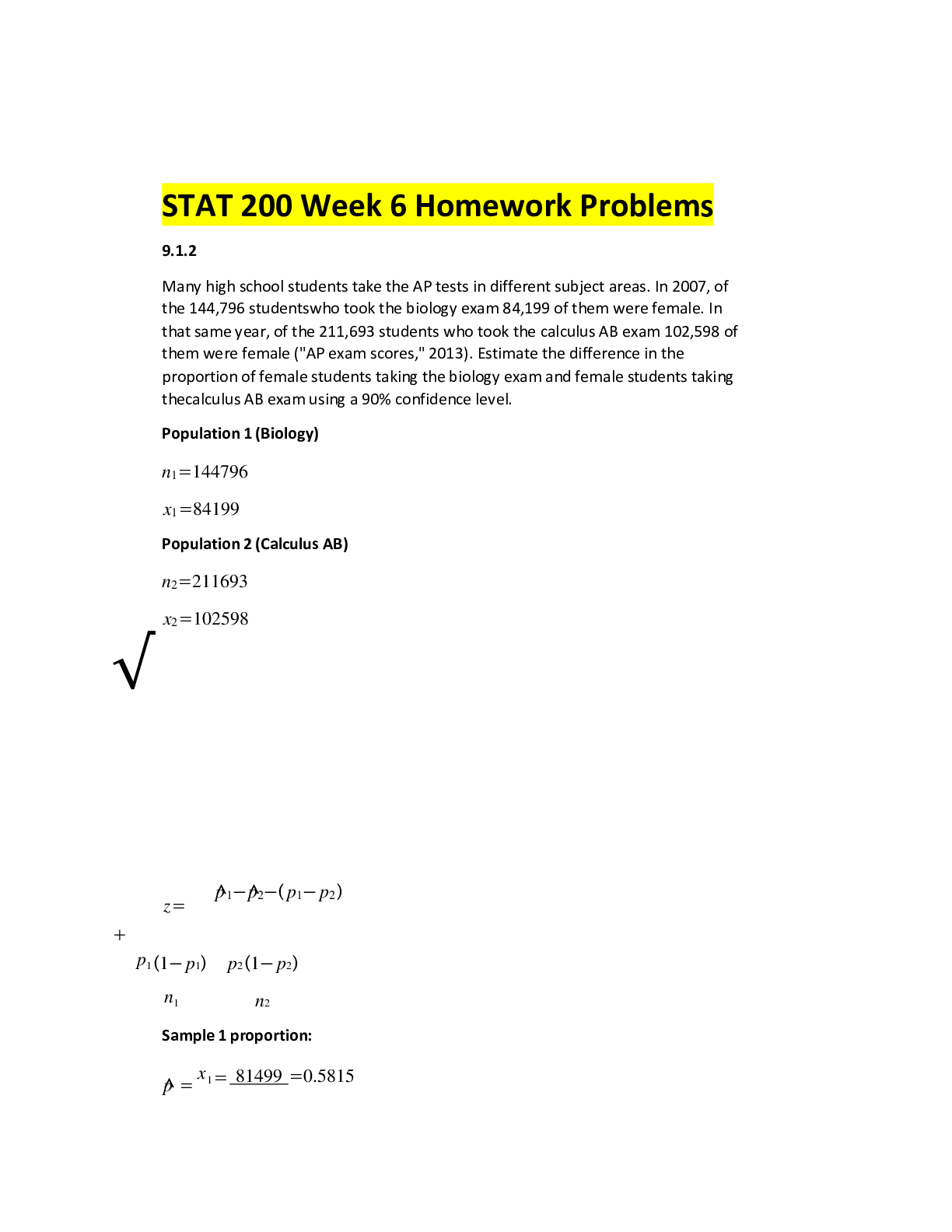

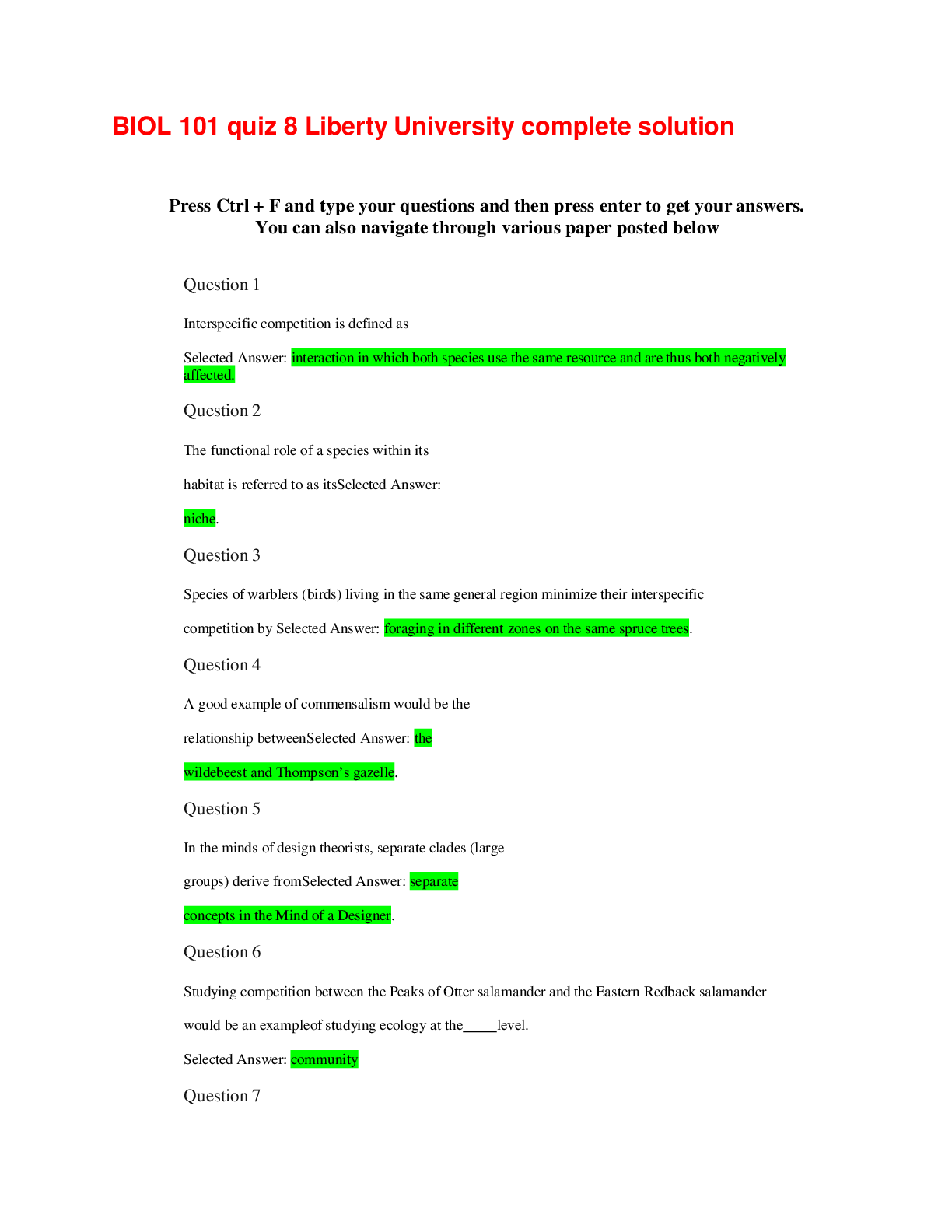
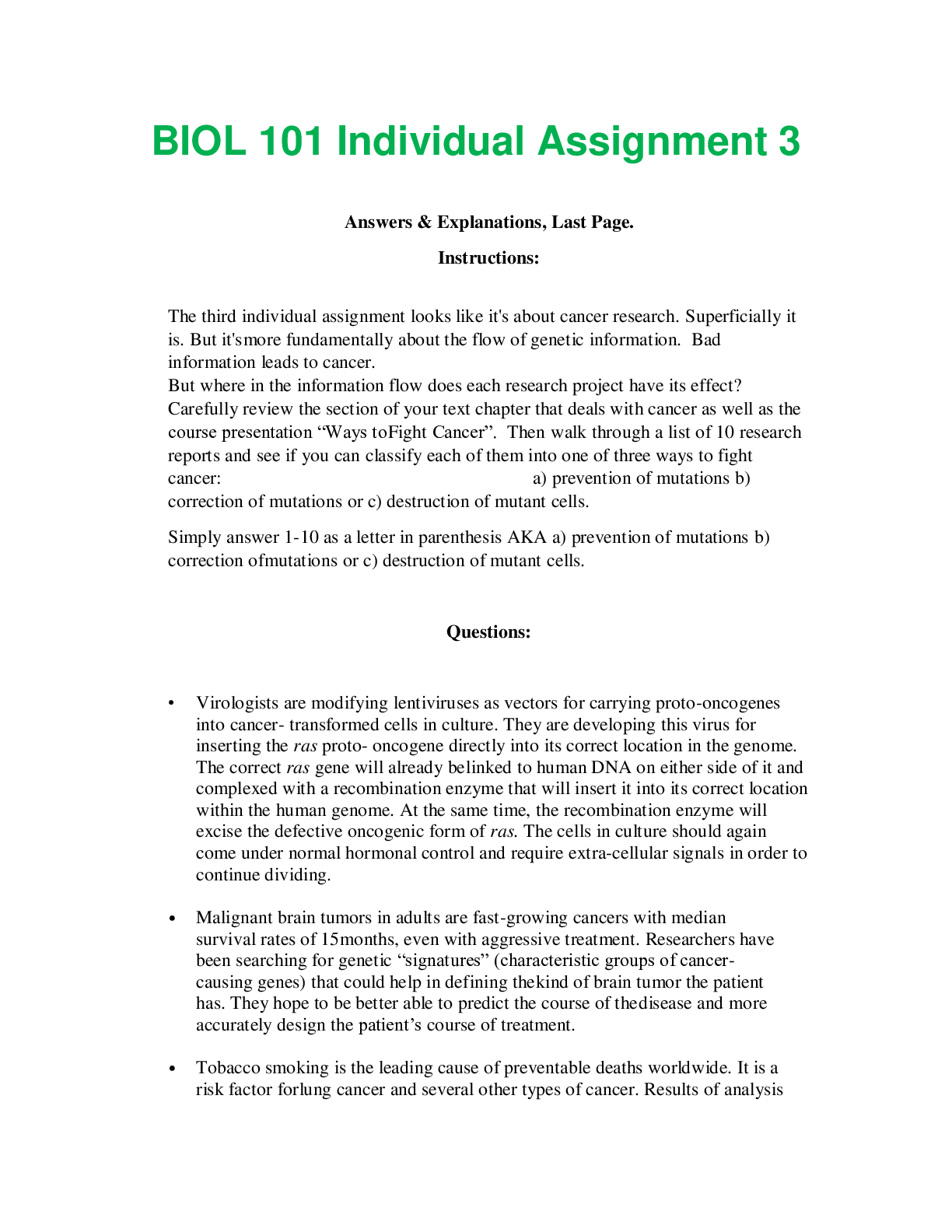
.png)


